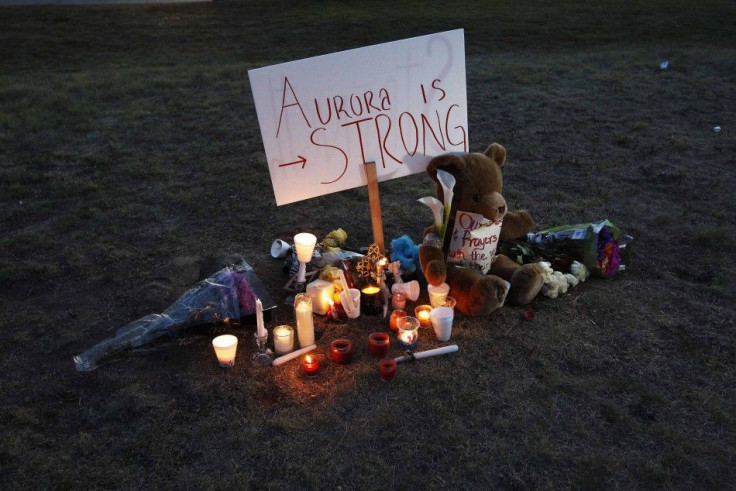Not Even The Aurora Massacre Changed Americans' Opinion On Gun Control: Poll

The national debate surrounding gun control may have heightened in the days following the July 20 mass shooting at an Aurora, Colorado, movie theater, but the tragedy has not influenced Americans' stance on gun laws, according to a new poll.
Both Democratic and Republican leaders have been reluctant to even broach the subject of gun control in the aftermath of the massacre, which killed a dozen people and wounded 58 others. Although President Barack Obama was a staunch advocate of tightening the nation's gun laws during his first campaign for the presidency, he has been largely silent on the topic this election cycle.
But that's probably okay with most Americans. In fact, the nation's view on the subject of gun control is virtually unchanged after the massacre, according to a new poll from the Pew Research Center, which found 47 percent of the 1,010 likely voters surveyed, said controlling gun ownership was more important than protecting the rights of Americans to own guns, while 46 percent said the opposite. That's essentially the same division as a survey Pew conducted earlier this year, when 45 percent prioritized gun control and 49 percent gun rights.
Other major shootings similarly had little-to-no effect on public opinion regarding gun laws. In the aftermath of both the January 2011 shooting in Tucson, Arizona, that injured Rep. Gabrielle Giffords and the April 2007 attack at Virginia Tech University -- both of which resulted in several fatalities -- there was no significant change in the balance of opinion on gun rights and gun control.
Interestingly, support for gun control legislation has seen a steady decline since the Virginia Tech shootings; in April 2008, 60 percent of Americans were purportedly in support of controlling gun ownership, compared to 47 percent today.
The public largely views shootings like the Aurora massacre as isolated acts of troubled individuals (67 percent), according to the poll, which may explain why so many people believe enforcing stricter gun laws is either pointless or impractical. Only about a quarter (24 percent) of respondents said those mass shootings reflect broader problems in American society.
But while a majority of the public apparently does not believe those acts of violence are a reflection of societal problems, the prevalence of mass shootings in the U.S. seems to indicate otherwise.
Since 1982, there have been at least 56 mass murders carried out with firearms in the U.S., according to a comprehensive analysis by Mother Jones, which identified shootings that took the lives of at least four people and occurred during a single incident in a public place.
Of the 132 guns possessed by the perpetrators, more than three-quarters were obtained legally -- including dozens of assault weapons and semi-automatic handguns, the weapons of choice.
Gun violence kills about 30,000 Americans and injures another 100,000 each year, according to the U.S. Centers for Disease Control and Prevention. The Law Center to Prevent Gun Violence reports that in 2009, the most recent statistics available, gun deaths comprised 68 percent of all homicides in the U.S.
© Copyright IBTimes 2025. All rights reserved.





















